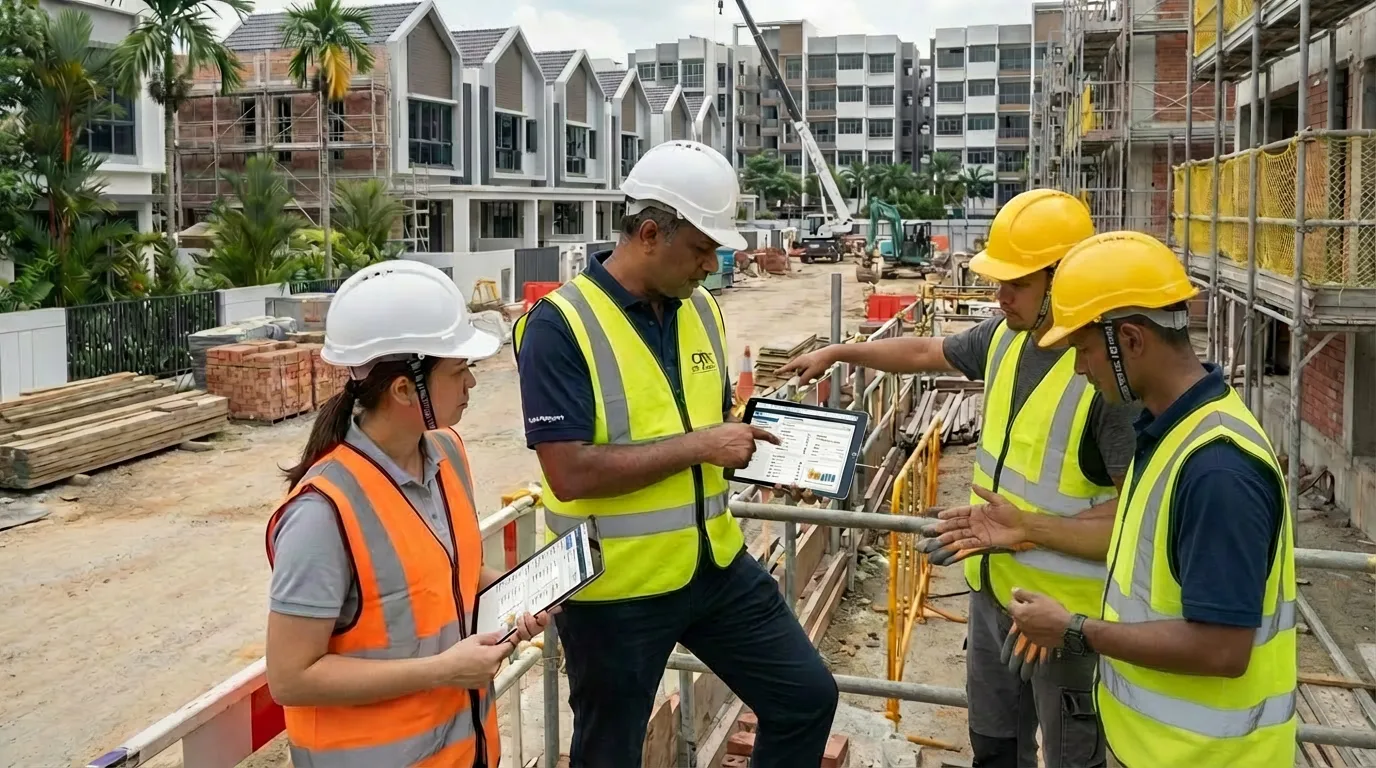Mastering Growth: Tips for Contractors Looking to Grow Their Business
Business owners in the construction industry tend to be ambitious. Every contractor’s ultimate goal is, without a doubt, to grow their businesses. Where there is ambition, there is growth.
by Sheldon Huang
|
Growing construction businesses no easy task, for all sizes of business alike. It takes an insane amount of insight, effort, money, and courage to take the step and succeed.
On top of that, construction belongs to one of the more unique industries. Taking experiences from businesses and entrepreneurs of other industries is a lot more difficult.
We at GoBuid understands the struggle, and value your business growth. In this blog, we’ll be looking at what contractors in the construction industry should look out for when chasing business goals.
Knowing Your Business
One thing about contractor business is that it’s not always rainbows and butterflies. Highs and lows are inevitable. Contractors and their company would need to prepare for any sudden occurrences.
Contractors making the decision to grow their businesses are certainly mentally prepared to take the highs and lows. What’s more important is the construction company being financially prepared.
An important question to ask before making any move: “will my business be able to recover if all goes wrong?”
It may seem a bit pessimistic to always prepare for the worse, but contractors should always prepare for the worse. Only when you can fail and recover for another run will you eventually succeed.
Knowing if you and the company are ready or not is more important than anything else. Some other factors to consider can be the amount of stable customers, amount of savings/leverage, work ethic among employees, etc.
For businesses that aren’t quite ready yet: don’t rush anything. Better to take the time to prepare than to start early without preparation.
Updated Business Plans & Goals
Business plans are a must-have for any form of business, especially construction.
While business plans are necessary, most contractors stop at “having one.” What contractors should have is a constantly updated business plan.
Many businesses have plans made long ago. These plans do not accurately show the current state of the business. If a drastic change or growth is foreseeable, contractors should always make sure that the business plan is up-to-date. Not just for the management as well, the employees should also be clear about what the business is pursuing at the moment.
This puts the company’s every member on the same road, towards the same goal. Having coordination within a company makes all the difference. Businesses are a lot more likely to grow successfully if every employee is seeking the success.
Playing Your Roles
When speaking about performing, the performance is only complete when every actor focuses on playing their part. The same goes for construction projects, and of course, business growths.
If there is not enough communication on what who’s jobs are, there are going to be issues. Not knowing one’s role can lower efficiency. It may also reduce work ethic and cause frustration among employees. This can be the difference between success and failure.
For the record, “60% of general contractors see problems with coordination and communication between project team members…as the key contributors to decreased labor productivity,” according to Autodesk.
If each person fully acknowledges what their own tasks are, it is no exaggeration that efficiency will multiply.
With that said, achieving perfect team cohesiveness is extremely difficult through traditional means. This is why contractors are tending to shift towards digital means of management in the modern construction industry.
An example would be GoBuid, empowering contractors with ambition. Made possible by GoBuid’s to-do list function, contractors can assign tasks to different members of the team with a click. The assignees receive the notice real-time, leaving no chances for miscommunication and human error.
It can be tough to get every member to focus on their work. However, contractors can use tools to help them achieve consistency among employees.

Embrace Changes
Stepping out of our comfort zones and fully embracing changes is difficult for people. However, being able to overcome the doubt is what separates successful business contractors and small business contractors.
The construction industry, being the second least digitalized according to Agarwal, Shankar, and Sridhar, has much room for improvement.
In recent years, many contractors have shifted towards digital construction management. For some contractors, this shift may seem unstable and unreliable.
However, every scary change is an opportunity to transform, especially in construction.
Take construction management software for example. Contractors who do not take advantage of it miss many benefits. These include real-time progress updates, better budget management, and equipment location tracking. More advanced technologies may even include features like managing data analytics.
Take the use of Building Information Modeling (BIM) for example, “82% of BIM users have reported a positive return-on-investment.”
Making a correct judgment can elevate the business by a lot, and vice versa for unfit judgments. Contractors should carefully evaluate the benefits and limitations of a change to the business, then follow through without doubts.
Slowing Down
Here is a message for both Small and Medium Enterprises and large corporations: slow down.
This might go against common beliefs, but it is okay to slow down. Taking a good look at your business before moving forward is ideal for steady business growth.
As stated in “Knowing Your Business,” inspecting and observing your business is often more important than making quick decisions. A contractor can do what’s best for their business only if they have taken the time to observe what the company needs.
Moving too fast can be more than detrimental. For all sizes of businesses, forcing the pace or not knowing your company can cost you your whole business.
As Grace Ellis stated in her blog, “53% of contractors in the U.S. feel that time constraints/ urgency of decisions presented the greatest risk to decision making.”
After completing digital transformation or expanding the business, it is important to conduct another round of inspection and stabilization. Setting up new goals and standards early can help contractors make critical decisions under time constraints.
Conclusion
In the construction industry, it is a lot easier to own a business than to maintain and grow a business.
With the tips mentioned above, contractors can avoid a lot of the “traps” that sabotage effort and set back businesses. Now with advantageous insight, go and show your ambition. Go grow your business. Go build tmrw.


